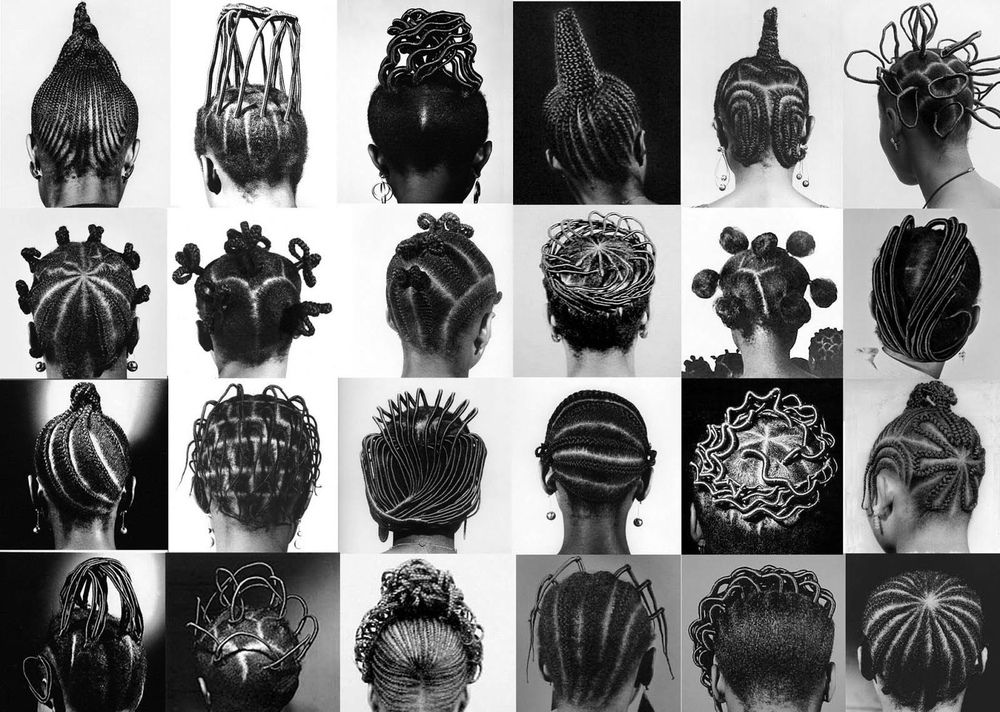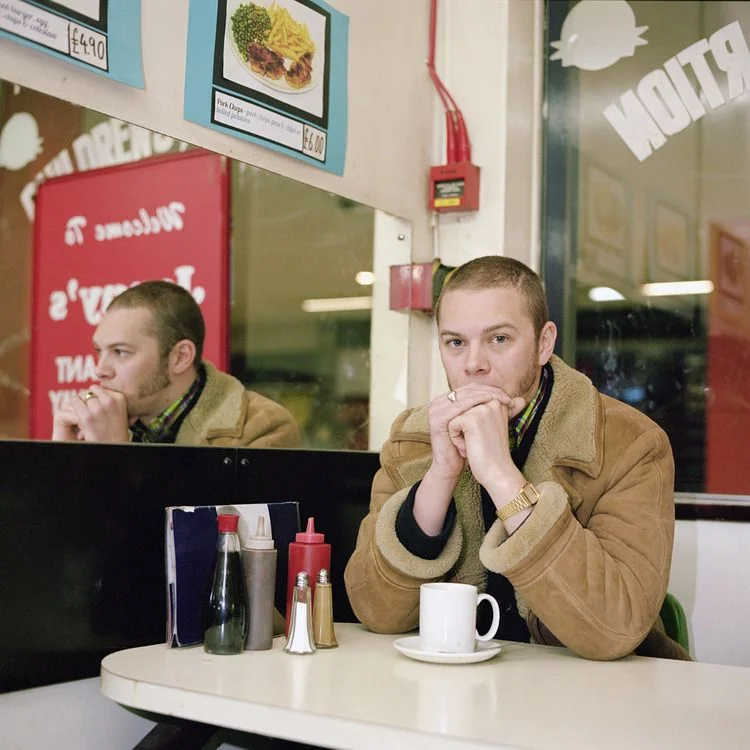J.D. Okhai Ojeikere
Ain't I a Woman? The black woman’s inferior position in today’s society is iterated in Sojourner Truth’s speech and again in bell hook’s book of the same phrase. The black woman’s hair has long been fetishized and manipulated as a tool for perverse fascination and weakening. J.D. 'Okhai Ojeikere’s 1968 series Hairstyles, however, exemplifies the beauty and cultural importance of the black woman’s hair combatting against this fetishization. Hairstyles is a series of over 1000 black and white portraits of Nigerian womens’ hairstyles against a bare backdrop with gentle lighting. The simplicity of the portraits highlight each distinct style and its artistry. The hairstyles proudly display Nigerian social and cultural life in such a way that also brings forth an empowered sense of black femininity and black female sexuality. The subjects’ backs to the camera allow for an inaccessibility on behalf of the viewer as we are not here to cast a forceful male-like gaze on the subjects, but rather appreciate Nigerian culture and femininity outside of ourselves. Through these elegant portraits, Hairstyles celebrates Nigerian identity and works as an artistic archival record.
J.D. 'Okhai Ojeikere was born in 1930 in a rural village in South-Western Nigeria. He worked as a studio photographer and in publicity after picking up a camera at age 20. An uncommon practice, J.D. 'Okhai Ojeikere further extended his work in photography and the arts when joining the Nigerian Arts Council in 1967. Shortly, he began his Hairstyles photo series and went on to have his works shown throughout the world at prominent institutions such as the Tate Modern, the Brooklyn Museum in Harlem, New York, the Cartier Foundation in Paris, the J. Paul Getty Museum of Art in Los Angeles, and several more. His photography was also featured in the 55th Venice Biennale d’arte. Today, J.D. 'Okhai Ojeikere is heralded for his immense and lasting contributions to Nigerian photography, documentary photography, and for his anthropological records of Nigerian culture.
Text by Perwana Nazif
Images courtesy of J.D. Okhai Ojeikere
What to read next






